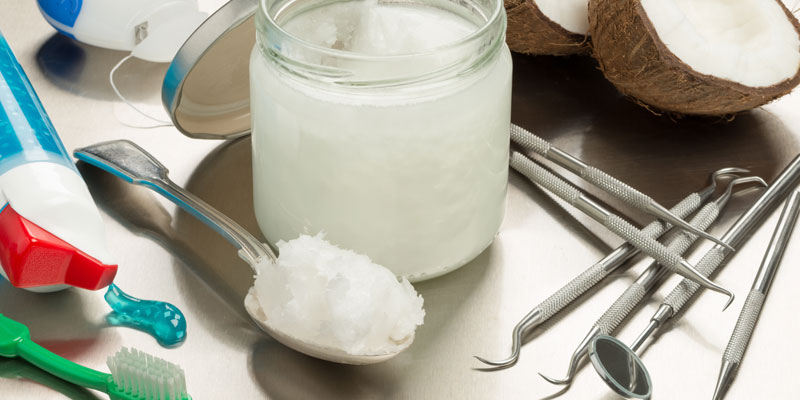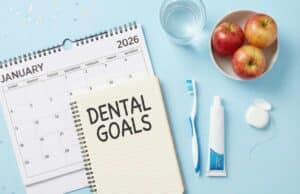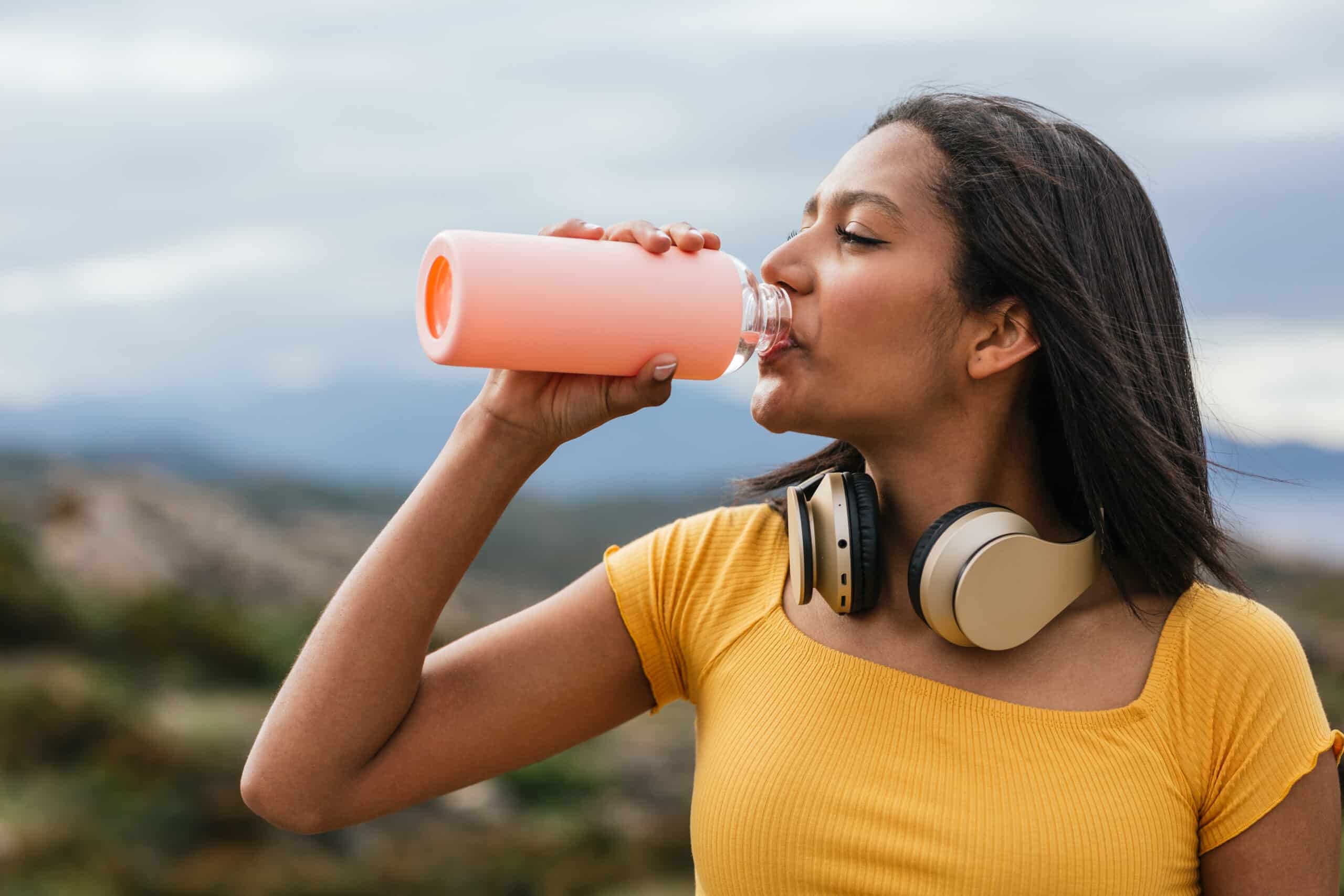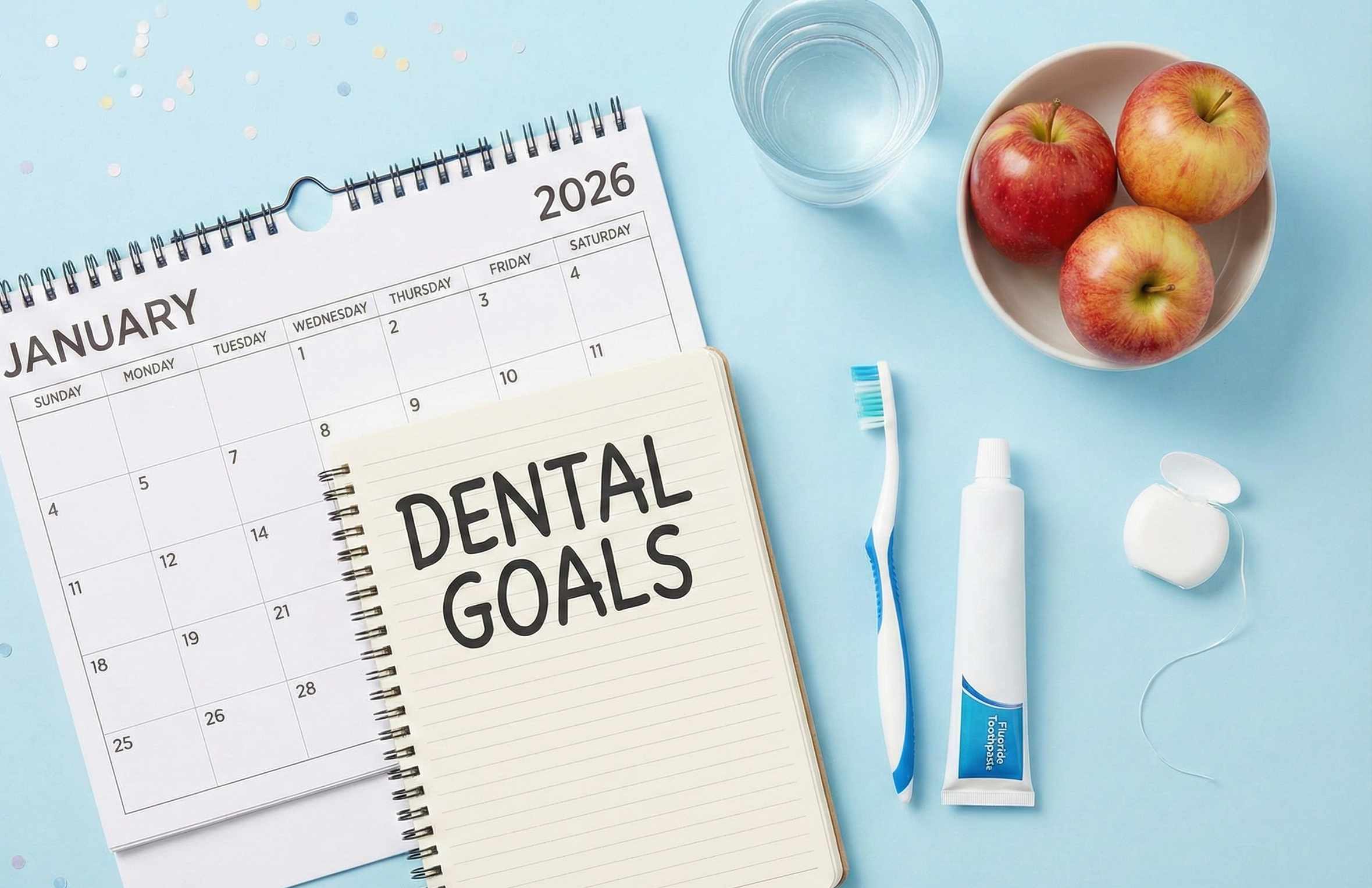- What is oil pulling and what are its benefits?
- Benefits of oil pulling are not medically proven
- Are there any dangers associated with oil pulling?
- Can oil pulling replace visiting my dentist?
Oil pulling is an ancient but controversial practice that many people today believe improves their oral health. A simple Google search yields lots of claims that oil pulling whitens teeth, strengthens gums and jaws, prevents gum disease, and fights bad breath.
Some also believe that oil pulling offers other health benefits, such as ridding the body of toxins, curing upset stomach, softening and improving skin, clearing sinuses, promoting heart health, and even helping to fight Alzheimer’s disease.
But is oil pulling safe? Do the claimed benefits outnumber the potential dangers?
For the uninitiated, let’s have a look at what oil pulling is.
What is oil pulling?
Oil pulling has existed for centuries, stretching back to ancient India between 3,000 – 5,000 years. It’s part of the holistic medical system called Ayurveda, which was designed to achieve good health and overall wellness through balancing the mind, body, and spirit. Oil pulling was developed to “pull” you back to good health by helping to maintain this balance.
Any edible oil should work, but many people prefer extra-virgin coconut oil for its pleasant taste and high amounts of lauric acid, which has beneficial antimicrobial properties.
The practice involves swishing oil around in your mouth for as little as 15 minutes, several times per day, to start reaping the reported benefits of this alternative practice.
What are the benefits of oil pulling?
The idea behind oil pulling is that swishing the oil around in your mouth reduces the amount of harmful bacteria on your teeth, gums, and tongue. That’s where many people claim the true benefits lie.
However, it’s important to note that there is no medically backed research supporting the idea that oil pulling actually makes a positive difference in your oral health. Like many alternative health treatments, oil pulling’s reputation stems from personal opinions as opposed to testing conducted by scientific and health professionals.
What the dental community does agree on is the necessity of removing harmful bacteria from your mouth to avoid all sorts of oral health conditions, such as:
- Gum disease: Also known as gingivitis, gum disease is caused by inflammation of the gums as the result of plaque buildup
- Bad breath: Bad breath, otherwise known as halitosis, is the result of bacteria in your mouth that comes from overall poor oral hygiene
- Cavities: A buildup of bacteria in your mouth can cause tooth decay, and lead to cavities, the formation of holes in your teeth
Proponents of oil pulling claim that, when practiced properly and with regularity, users can expect to start seeing results such as reduced plaque, cavity prevention and stronger gums in 2 – 3 months. Some users also claim that oil pulling helped remove stains from their teeth.
Again, most of these claims are anecdotal and haven’t been backed by any scientific or medical research. There’s also little to no evidence of oil pulling helping to prevent or treat other non-oral health conditions.
So now that we know the reported benefits that oil pulling can have on your oral health, what are the supposed dangers or health risks of the practice?
Are there any dangers associated with oil pulling?
Although there hasn’t been any official studies or reports on concrete dangers reported from oil pulling, there are some negative side effects that can happen, especially if an improper technique is used:
- Dry mouth
- Excessive thirst
- Muscular stiffness
- Sore jaw
- Headache
- Exhaustion
- Loss of taste
- Little sensation in the mouth
Although these conditions can cause you a level of discomfort, they likely won’t pose any serious danger to your overall health. Many of these can be minimized or eliminated by simply adjusting or suspending your oil pulling technique. They might also go away over time as your facial muscles get used to the long periods of swishing, especially if you’ve just started with the practice.
However, there is one danger to your oral health if you rely solely on oil pulling to help treat your oral health: complacency.
Can I stop visiting my dentist for regular check-ups because I’m oil pulling?
Coconut oil pulling is considered by many to be a convenient, inexpensive way to help reduce the amount of harmful bacteria from your mouth. Although oil pulling reviews from its practitioners are generally (and sometimes enthusiastically) positive, one major risk to oil pulling is the belief that doing alone so can replace your traditional oral health routine.
This is definitely not the case. Alternative methods of oral care can augment regular oral maintenance, but in no event should you stop seeing the dentist or practicing good oral habits because you’re oil pulling.
Whether oral pulling or not, be sure to keep your healthy smile by:
- Visit your dentist regularly
- Brushing at least twice per day
- Flossing at least once per day
- Use a fluoride-based toothpaste
- Rinse your mouth with mouthwash
- Drink plenty of water every day
- Eat a healthy, balanced diet and avoid sugary snacks and beverages
If you’re curious about oil pulling, be sure to speak to your dentist or hygienist to see if they think it’s right for you. They have your best interests at heart when it comes to your teeth and gums, and will steer you in the right direction so you can keep smiling with confidence.
Do you have questions about oil pulling? Talk to the team at Yonge Eglinton Dental in Toronto
Removing bacteria from your mouth is important to maintaining optimum oral health, but oil pulling can never replace a dental care program that includes brushing, flossing, and regular dental check-ups.
If you have any questions about integrating oil pulling into your dental healthcare routine, or have any concerns about your overall oral health, give Yonge Eglinton Dental a call today at 416-932-2222 or visit us online to book an appointment. We’d love to see you!








